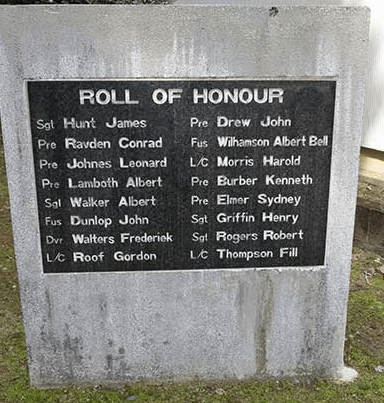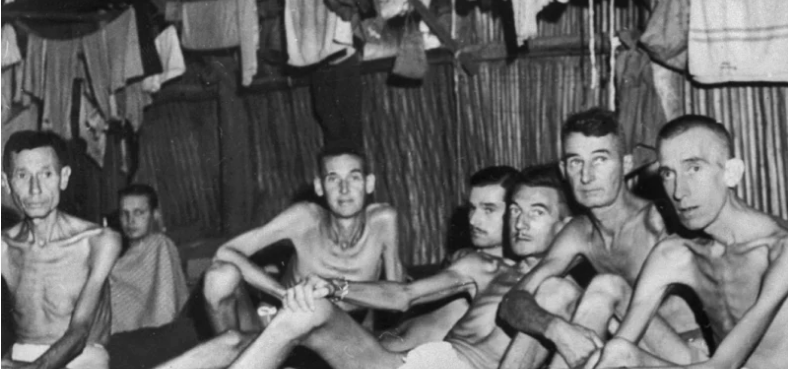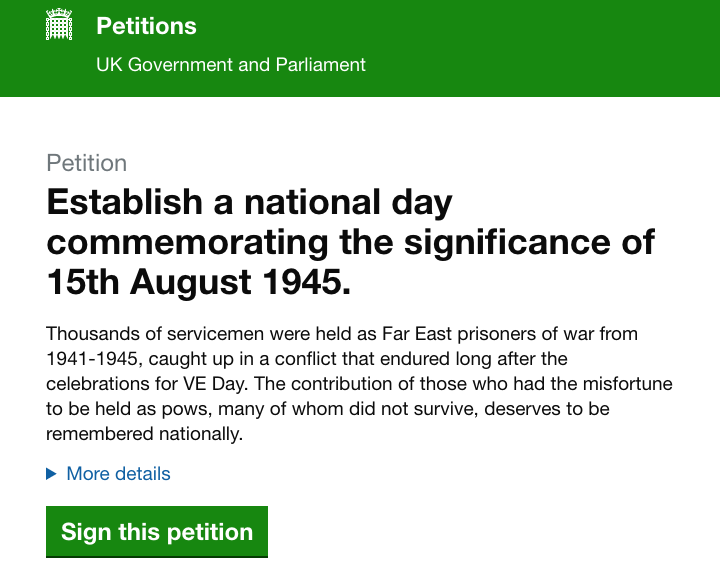Remembering the forgotten army – why it’s finally time for a day of commemoration
There’s an online petition demanding a national day of recognition to commemorate the often overlooked VJ day (Victory in Japan) on August 15th 1945, which marked the real end of the Second World War. Former Hastings Borough Councillor Richard Street has a special reason to feel passionately about the issue and below he explains why. We also look at some of the wider issues involved.
As a child, I grew up knowing that my father had been a prisoner of the Japanese for three and a half years during the Second World War – but I could never understand how that could be writes Richard Street.
Surely only bad people went to prison and my daddy was a good man! It was only when I grew up and learned what those years had actually meant for the hundreds of allied soldiers from many countries who had been tortured and, in many cases, brutally murdered by their captors, that I began to understand. My dad survived, obviously or I wouldn’t be here today, but many of his comrades did not.
He kept a diary throughout those years – a brave thing to do given the punishment he would have received if it had been found. It recounts the three-month sea voyage to Singapore, his being taken prisoner on February 15th 1942 following the Japanese victory and his movements from one prison camp to another, his illnesses and spells in hospital. Just about every day’s entry includes the stark words “X died today” or “Y was killed today”.

In the 1980s, dad returned to Japan with a group of former Far East Prisoners of War and visited Iruka, one of several places he had been held captive and forced to work in the copper mine. He was overwhelmed by the welcome and generosity he received and the genuine shame of local people for how the previous generation had behaved.
The day the war ended local people had created a shrine to those who had died and tended to it every single day thereafter.
Liberation didn’t come for dad until August 15th 1945 when the Japanese finally surrendered.
I believe it is very important that the contribution of allied soldiers in the Far East, many of whom did not survive, is not forgotten when we commemorate the end of the war against fascism next year. It is right that we should commemorate Victory in Europe as a public holiday on May 8th but we should equally commemorate August 15th when the war actually ended and my Dad could begin the long journey home.
Thousands of servicemen were held as Far East prisoners of war from 1941-1945, caught up in a conflict that endured long after the celebrations for VE Day.
The contribution of those who had the misfortune to be held as Prisoners of War, many of whom did not survive, surely deserves to be remembered nationally.
Over 50,000 UK servicemen were held as Japanese prisoners of war in South East Asia between 1941-1945, of whom 25 per cent were either killed or died during captivity. With few survivors now left, this conflict is fast disappearing from living memory. These brave men felt cruelly overlooked upon their repatriation and beyond, and a national day of commemoration would go some way to putting that right say supporters of the petition.

In a world of instant and constant communication it’s difficult to understand that these prisoners of war had had absolutely no contact with home for nearly four years. Here’s a piece of writing that explains what they faced when the Second World War finally ended on August 15th 1945.
- Imagine you are returning home after three and a half years or more as a far east prisoner of War?
- Your journey home would be by sea to give you some time to start the recovery from the ordeal, so your appearance would not be quite so upsetting for friends and relatives on your return.
- You would be returning not knowing whether your parents or other relatives were alive or dead. No communications had got through and they had not heard from you for perhaps four years and you had not heard from them.
- Relatives could only hope that you were still alive and going to come home.
- You do not know if they are still at the same address or if the house is still standing after the bombings.
- You arrive back without ceremony as most people thought the war had ended after Victory in Europe five months earlier.
- You are expected to pick up where you left off before you went to fight for your country.
- You are plagued with various infections and mental health issues, largely unrecognised for the rest of your life, a life that may be shortened because of your experiences. appalling treatment and conditions you endured.
- You are one of the forgotten army.
Please sign and share the petition to ensure these men, and all other men, women and children who suffered in the war in the Far East, will be remembered.
https://petition.parliament.uk/petitions/236760?fbclid=IwAR009lOXMlpMKHhR2L3s1FRNH5CncSM8WA0EFEL2BgFn6rIYZ0r31Ee0hds





These poor men suffered so much at the hands of the nips,there was no need for this type of treatment,goes to show how barbaric and uncivilized the nips really were.v